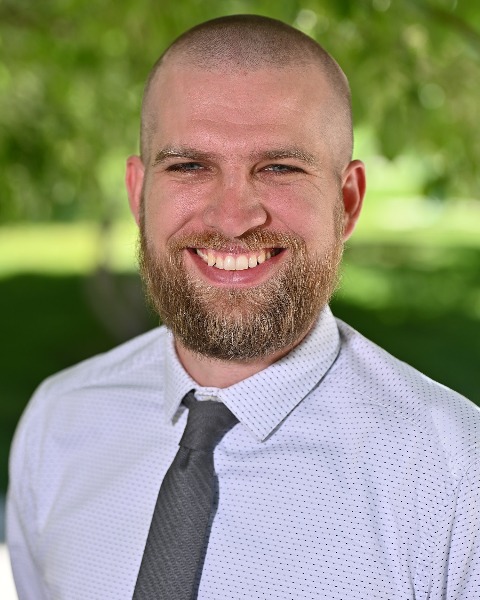Living with the COVID-19 Pandemic: Effect on VA CLC Residents
1.00 CME / 1.00 CMD Clinical / 1.00 MOC
The response to COVID-19 altered the nursing home environment. This session utilizes the data of the Veterans Affairs Community Living Centers' system to explore how the response to the virus impacted the physical function, cognitive function, and mood of VA CLC residents. The session will also describe long COVID and the associated symptoms and outcomes. Learning from experience can influence nursing facility’s policies on infection control, vaccination and optimal care delivery for future infectious disease outbreaks.
Learning Objectives:
- Summarize the change in distressed behavior during the COVID-19 pandemic in Veterans Affairs Community Living Centers (CLCs).
- Discuss the impact of COVID-19 pandemic on physical therapy utilization and Veteran physical function.
- Describe the association of wandering behavior with COVID-19.
- Explain the prevalence of post-acute symptoms of COVID-19 in CLC residents.
Presenters:
 Thomas Bayer, MD, is an assistant professor of geriatrics and palliative medicine at the Brown Warren Alpert Medical School, and Advanced Fellow in the Providence Veterans Affairs Medical Center of Innovation in Long Term Services and Supports. He also provides on-site primary care to assisted living residents and leads a dementia care quality improvement program. His research and clinical interest converge on the question of how and when care management programs can help patients and caregivers with confirmed or suspected dementia.
Thomas Bayer, MD, is an assistant professor of geriatrics and palliative medicine at the Brown Warren Alpert Medical School, and Advanced Fellow in the Providence Veterans Affairs Medical Center of Innovation in Long Term Services and Supports. He also provides on-site primary care to assisted living residents and leads a dementia care quality improvement program. His research and clinical interest converge on the question of how and when care management programs can help patients and caregivers with confirmed or suspected dementia.
 Mriganka Singh, MD, AGSF, is an Associate Professor of Medicine at the Warren Alpert School of Medicine. She is a clinician, educator and a Quality Improvement specialist. She is a health services research associate at the VA Center of Innovation in Long Term Services and Supports, Providence. She teaches medical residents, fellows in the inpatient setting and a course "Measuring and Improving the Quality of Health Care" at Brown School of Public Health. She leads the Geriatrics Elective Joints/Orthopedics Co-management program and is involved in QI initiatives including Age Friendly Health Systems across Lifespan hospitals.
Mriganka Singh, MD, AGSF, is an Associate Professor of Medicine at the Warren Alpert School of Medicine. She is a clinician, educator and a Quality Improvement specialist. She is a health services research associate at the VA Center of Innovation in Long Term Services and Supports, Providence. She teaches medical residents, fellows in the inpatient setting and a course "Measuring and Improving the Quality of Health Care" at Brown School of Public Health. She leads the Geriatrics Elective Joints/Orthopedics Co-management program and is involved in QI initiatives including Age Friendly Health Systems across Lifespan hospitals.
 Alexander Garbin, PT, DPT, PhD, is an Advanced Research Fellow in the Eastern Colorado VA Healthcare System Geriatrics, Research, Education and Clinical Center (GRECC) and postdoctoral fellow at the University of Colorado Anschutz Medical Campus. While receiving his doctoral training at the University of Southern California, Dr. Garbin employed large datasets to investigate sources of heightened fall risk in older adults with a fear of falling. During his postdoctoral training, Dr. Garbin aims to inform care and improve outcomes for older adults through a focus on implementation science and a continued use of data analytics on established datasets.
Alexander Garbin, PT, DPT, PhD, is an Advanced Research Fellow in the Eastern Colorado VA Healthcare System Geriatrics, Research, Education and Clinical Center (GRECC) and postdoctoral fellow at the University of Colorado Anschutz Medical Campus. While receiving his doctoral training at the University of Southern California, Dr. Garbin employed large datasets to investigate sources of heightened fall risk in older adults with a fear of falling. During his postdoctoral training, Dr. Garbin aims to inform care and improve outcomes for older adults through a focus on implementation science and a continued use of data analytics on established datasets.
 Ciera Leeder, MBBS, MSc, is an advanced Geriatrics fellow at Brown University. Prior to medical school, she obtained a Masters in Epidemiology from the University of Ottawa. Her current area of research is post acute sequelae of SARS COV-2 among nursing home residents.
Ciera Leeder, MBBS, MSc, is an advanced Geriatrics fellow at Brown University. Prior to medical school, she obtained a Masters in Epidemiology from the University of Ottawa. Her current area of research is post acute sequelae of SARS COV-2 among nursing home residents.
Credit Information:
Activity Created: 3/2023
Credits Expire: 3/2026
- 1 CME
- 1 CMD Clinical
- 1 MOC
Credit Statements:
CME: AMDA – The Society for Post-Acute and Long-Term Care Medicine designates this enduring material for a maximum of 1 AMA PRA Category 1 Credit(s)TM. Physicians should only claim credit commensurate with the extent of their participation in the activity.
AMDA – The Society for Post-Acute and Long-Term Care Medicine for Post-Acute and Long-Term Care Medicine is accredited by the Accreditation Council for Continuing Medical Education (ACCME) to provide continuing medical education for physicians.
CMD: This self-study activity has been pre-approved by the American Board of Post-Acute and Long-Term Care Medicine (ABPLM) for a total of 1 clinical hour(s) toward certification or recertification as a Certified Medical Director (CMD) in post-acute and long-term care medicine. The CMD program is administered by the ABPLM. Each physician should claim only those hours of credit actually spent on the activity.
ABIM Maintenance of Certification (MOC): Successful completion of this CME activity, which includes participation in the evaluation component, enables the participant to earn up to 1 Medical Knowledge MOC points and patient safety credit in the American Board of Internal Medicine’s (ABIM) Maintenance of Certification (MOC) program.
Participants will earn MOC points equivalent to the amount of CME credits claimed for the activity. It is the CME activity provider’s responsibility to submit participant completion information to ACCME for the purpose of granting ABIM MOC credit.
Visit the Continuing Education page for information on if and how you can claim credit/hours for AMDA’s education.
Disclosure Information:
The Society requires the disclosure of all speaker/faculty/planner’s relevant financial relationships; presence of off-label use of a device or medication; and discussion of any experimental, new or evolving topic prior to each accredited education activity.
If the learner perceives any bias toward a commercial product or service, advocation of unscientific approaches to diagnosis or therapy, or recommendation, treatment, or manners of practicing healthcare that are determined to have risks or dangers that outweigh the benefits or are known to be ineffective in the treatment of patients please report this to the Society’s staff.
- Julie Gammack, MD, CMD (Planner & Speaker): Stockholder: Amarin
- Kenya Rivas Velasquez, MD, CMD, FAAFP (Planner & Speaker): OptumRx: Stockholder
- All other planners, speakers, and AMDA staff have no relationships with ineligible companies.
All relevant financial relationships have been identified and mitigated.